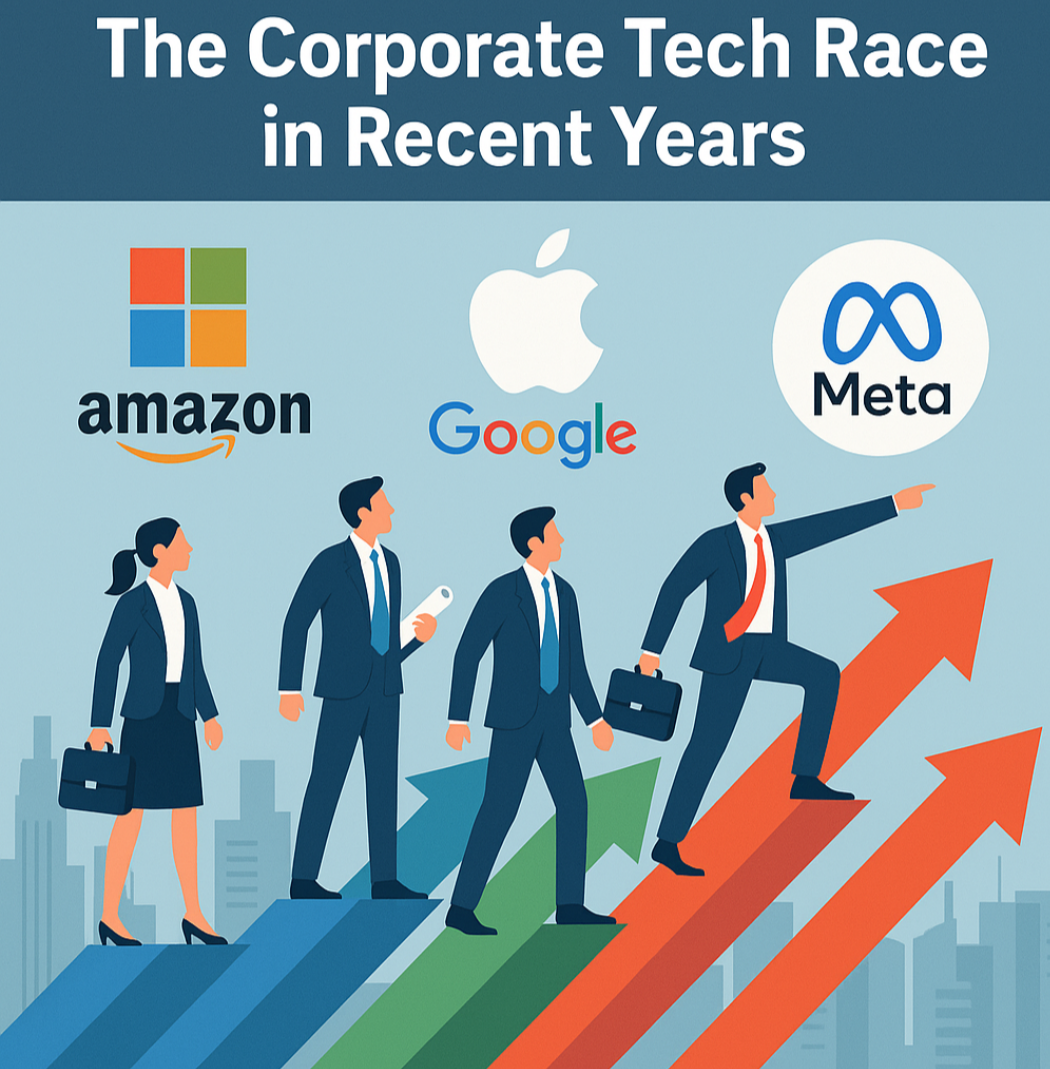
The Corporate Tech Race in Recent Years
Big Tech Giants and the Innovation Battlefield
In the past decade, the world has witnessed an unprecedented surge in technological advancements led by a handful of mega-corporations. At the forefront of this race are companies like Apple, Microsoft, Google, Meta (formerly Facebook), and Amazon. These firms have been in relentless pursuit of market dominance across multiple domains including cloud computing, artificial intelligence, augmented reality, and quantum computing. The competition is fierce, not just for market share, but for talent, patents, and global influence.
Artificial Intelligence: The New Frontier
No other field has captured the imagination of the corporate world quite like artificial intelligence (AI). Companies such as OpenAI and DeepMind (owned by Alphabet) have made enormous strides in generative models, natural language processing, and reinforcement learning. Meanwhile, IBM Watson continues to push for enterprise AI solutions, and NVIDIA has emerged as a crucial enabler, providing the GPU infrastructure that powers modern AI systems. The AI arms race is now central to strategic priorities for almost every tech corporation, including those in finance, healthcare, and logistics.
Cloud Computing and Platform Wars
The battle for the cloud is one of the most intense corporate rivalries of our time. Amazon Web Services (AWS) was an early leader, but competition from Microsoft Azure and Google Cloud has intensified the landscape. New players like Oracle Cloud and IBM Cloud continue to stake their claims, often targeting niche verticals like government contracts or secure enterprise platforms. The focus has shifted to hybrid cloud solutions, edge computing, and AI-enhanced infrastructure, all of which are redefining what cloud means in a corporate setting.
Metaverse Dreams and Virtual Worlds
When Meta rebranded from Facebook, it signaled a seismic shift in the direction of big tech: the metaverse. Although the hype has cooled, companies including Microsoft (with Mesh and Teams integrations), Roblox, Epic Games (Unreal Engine), and even The Sandbox are actively building persistent virtual ecosystems. These efforts are reshaping social interaction, remote work, and digital identity — with NFTs and decentralized ownership platforms such as Decentraland playing a supporting role.
Semiconductors: The Hidden Engine of Innovation
Beneath the surface of every digital breakthrough is a battle over silicon. Intel, AMD, NVIDIA, and Qualcomm are in a constant race to deliver faster, smaller, and more energy-efficient chips. At the manufacturing level, TSMC and Samsung Semiconductor dominate chip production, and the strategic role of semiconductors has become a geopolitical concern, especially between the U.S. and China. Recent moves by ASML and ARM show that control over this sector will define national and corporate power in the digital future.
Consumer Tech and Ecosystem Lock-In
In the battle for consumer loyalty, the war is being fought on multiple fronts: smartphones, wearables, smart homes, and subscription services. Apple continues to perfect its ecosystem lock-in model through iCloud, Apple Music, Apple Fitness+, and iMessage exclusivity. Google pushes Android, Pixel devices, and Google One, while Samsung integrates SmartThings across devices. Meanwhile, Sonos, Ring, and Netflix are carving their own niches within the smart ecosystem. Subscription-based models and interoperability across devices have become key strategies to retain users long-term.
Cybersecurity and the Corporate Arms Race
As digital operations scale, so do threats. Cybersecurity is no longer an IT department’s concern — it is now a boardroom priority. Giants like Palo Alto Networks, CrowdStrike, Zscaler, and Okta are leading a new wave of cloud-native security. Even traditional tech firms like Microsoft and Google are heavily investing in zero-trust architectures and AI-based threat detection. Breaches like those experienced by SolarWinds and Equifax have only accelerated the importance of proactive defense systems.
Sustainability, ESG, and Green Innovation
Environmental and social governance (ESG) has entered the core strategy of major corporations. Tech firms like Apple, Google, and Microsoft have committed to being carbon neutral or even carbon negative within the next decade. Innovations in clean energy, green data centers, and circular product design are now viewed as competitive advantages. Companies like Patagonia and Tesla are redefining consumer expectations around sustainability, while software firms increasingly include ESG reporting tools in their platforms.
The Rise of Superapps and Ecosystem Aggregation
Inspired by Asian tech ecosystems, Western companies are now exploring the idea of superapps — single platforms that offer messaging, payments, shopping, and entertainment in one place. WeChat and Grab pioneered this model, and now X (formerly Twitter) under Elon Musk has publicly expressed plans to become a Western version of a superapp. Meanwhile, Shopify, PayPal, and Revolut are adding more services into a unified user experience, further blurring the lines between fintech, e-commerce, and communication.